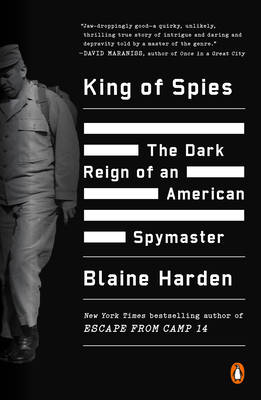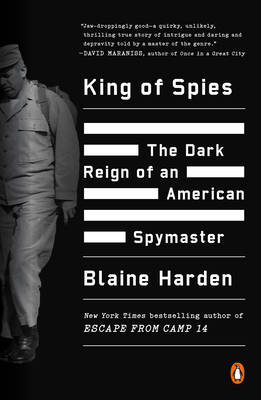
- Retrait gratuit dans votre magasin Club
- 7.000.000 titres dans notre catalogue
- Payer en toute sécurité
- Toujours un magasin près de chez vous
- Retrait gratuit dans votre magasin Club
- 7.000.0000 titres dans notre catalogue
- Payer en toute sécurité
- Toujours un magasin près de chez vous
23,95 €
+ 47 points
Format
Description
The New York Times bestselling author of Escape from Camp 14 returns with the untold story of one of the most powerful spies in American history, shedding new light on the U.S. role in the Korean War, and its legacy In 1946, master sergeant Donald Nichols was repairing jeeps on the sleepy island of Guam when he caught the eye of recruiters from the army's Counter Intelligence Corps. After just three months' training, he was sent to Korea, then considered a backwater and beneath the radar of MacArthur's Pacific Command. Though he lacked the pedigree of most U.S. spies--Nichols was a 7th grade dropout--he quickly metamorphosed from army mechanic to black ops phenomenon. He insinuated himself into the affections of America's chosen puppet in South Korea, President Syngman Rhee, and became a pivotal player in the Korean War, warning months in advance about the North Korean invasion, breaking enemy codes, and identifying most of the targets destroyed by American bombs in North Korea. But Nichols's triumphs had a dark side. Immersed in a world of torture and beheadings, he became a spymaster with his own secret base, his own covert army, and his own rules. He recruited agents from refugee camps and prisons, sending many to their deaths on reckless missions. His closeness to Rhee meant that he witnessed--and did nothing to stop or even report--the slaughter of tens of thousands of South Korean civilians in anticommunist purges. Nichols's clandestine reign lasted for an astounding eleven years. In this riveting book, Blaine Harden traces Nichols's unlikely rise and tragic ruin, from his birth in an operatically dysfunctional family in New Jersey to his sordid postwar decline, which began when the U.S. military sacked him in Korea, sent him to an air force psych ward in Florida, and subjected him--against his will--to months of electroshock therapy. But King of Spies is not just the story of one American spy. It is a groundbreaking work of narrative history that--at a time when North Korea is threatening the United States with long-range nuclear missiles--explains the origins of an intractable foreign policy mess.
Spécifications
Parties prenantes
- Auteur(s) :
- Editeur:
Contenu
- Nombre de pages :
- 272
- Langue:
- Anglais
Caractéristiques
- EAN:
- 9780143128861
- Date de parution :
- 02-10-18
- Format:
- Livre broché
- Format numérique:
- Trade paperback (VS)
- Dimensions :
- 137 mm x 213 mm
- Poids :
- 258 g

Les avis
Nous publions uniquement les avis qui respectent les conditions requises. Consultez nos conditions pour les avis.






